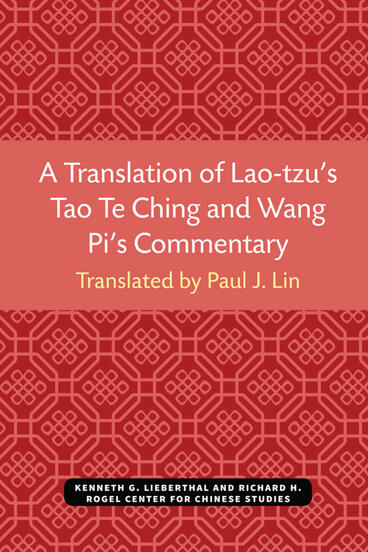A Translation of Lao-tzu’s Tao Te Ching and Wang Pi’s Commentary
A meticulous translation of a Taoist classic carefully annotated with insights from an influential early commentary
Description
During the Spring-Autumn period (722–420 BCE) and the time of the Warring States (480–222 CE), China was in great turmoil. Intellectuals and social reformers sifted through their wisdom and knowledge of China’s experiences up to then, attempting to find a solution to their situation. The Tao Te Ching, one of the foremost products of the era, is a metaphysical book, a source of the highest political thought. Many readers have found in it representations of the highest ideals of human endeavors. Yet given its likely oral origin and the technological limitations of its early textual transmission, the Tao Te Ching raises numerous questions related to authorship, date of origin, internal organization, textual coherence, and editorial history. Of the scores of translations of the Tao Te Ching, the great majority are based on the edition prepared by the third-century scholar Wang Pi. Wang’s profound commentary is itself a deeply influential text in the development of Taoist thought. Paul Lin presents the commentary, otherwise unavailable in English, in the form of footnotes accompanying his meticulous rendition of the Taoist classic.
Paul J. LIN is Professor of Non-Western Philosophy and Chinese Philosophy at Southern University.

